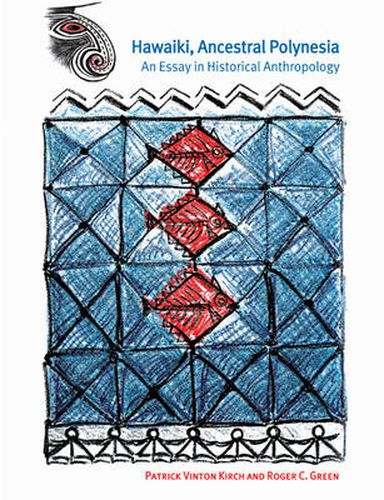Readings Newsletter
Become a Readings Member to make your shopping experience even easier.
Sign in or sign up for free!
You’re not far away from qualifying for FREE standard shipping within Australia
You’ve qualified for FREE standard shipping within Australia
The cart is loading…






The power of an anthropological approach to long-term history lies in its unique ability to combine diverse evidence, from archaeological artifacts to ethnographic texts and comparative word lists. In this innovative book, Kirch and Green explicitly develop the theoretical underpinnings, as well as the particular methods, for such a historical anthropology. Drawing upon and integrating the approaches of archaeology, comparative ethnography, and historical linguistics, they advance a phylogenetic model for cultural diversification, and apply a triangulation method for historical reconstruction. They illustrate their approach through meticulous application to the history of the Polynesian cultures, and for the first time reconstruct in extensive detail the Ancestral Polynesian culture that flourished in the Polynesian homeland - Hawaiki - some 2,500 years ago. Of great significance for Oceanic studies, Kirch and Green’s book will be essential reading for any anthropologist, prehistorian, linguist, or cultural historian concerned with the theory and method of long-term history.
$9.00 standard shipping within Australia
FREE standard shipping within Australia for orders over $100.00
Express & International shipping calculated at checkout
The power of an anthropological approach to long-term history lies in its unique ability to combine diverse evidence, from archaeological artifacts to ethnographic texts and comparative word lists. In this innovative book, Kirch and Green explicitly develop the theoretical underpinnings, as well as the particular methods, for such a historical anthropology. Drawing upon and integrating the approaches of archaeology, comparative ethnography, and historical linguistics, they advance a phylogenetic model for cultural diversification, and apply a triangulation method for historical reconstruction. They illustrate their approach through meticulous application to the history of the Polynesian cultures, and for the first time reconstruct in extensive detail the Ancestral Polynesian culture that flourished in the Polynesian homeland - Hawaiki - some 2,500 years ago. Of great significance for Oceanic studies, Kirch and Green’s book will be essential reading for any anthropologist, prehistorian, linguist, or cultural historian concerned with the theory and method of long-term history.